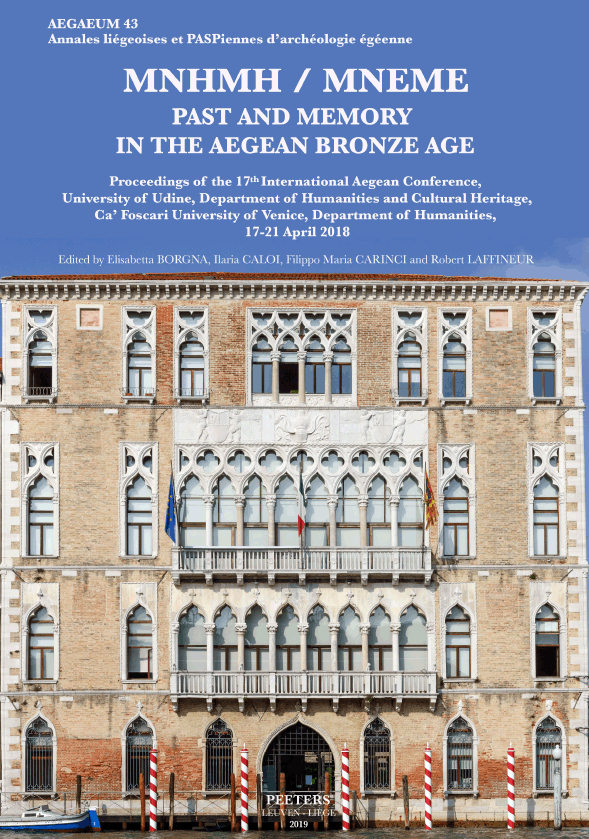

 0
EN
0
EN

The 17th International Aegean Conference / Rencontre égéenne internationale MNEME was organised by the University of Udine, Department of Humanities and Cultural Heritage, and the Ca’ Foscari University of Venice, Department of Humanities, starting from the many suggestions given by several studies which have been recently devoted to the perception of and confrontation with the past in ancient societies as well as to the manifold practices of memory including memorializing and memory keeping. Scholars have focused on the important function of social memory for the construction of collective identities including ethnicity. Construction, re-use and manipulation of the past have been identified in several contexts as ideological strategies favouring cultural continuity. On the one hand, well-defined chronological limits have been reconsidered following the evidence of long-term dynamics based on the reproduction of relevant social practices through space and time. On the other hand, phenomena of cultural discontinuity and innovation have also resulted in being profoundly connected to the approach that ancient communities had towards their past, which they variously expressed in monumental architecture, funerary layout, iconographic and stylistic traditions and social practices in both ceremonial and domestic contexts. Furthermore, fragmentation, sacrifice or storage of material culture and economic resources - phenomena relevant to different systems of political economy - are in turn strongly connected to the practice of memory, with an impact on the cultural landscape including settlement as well as funerary domains.



